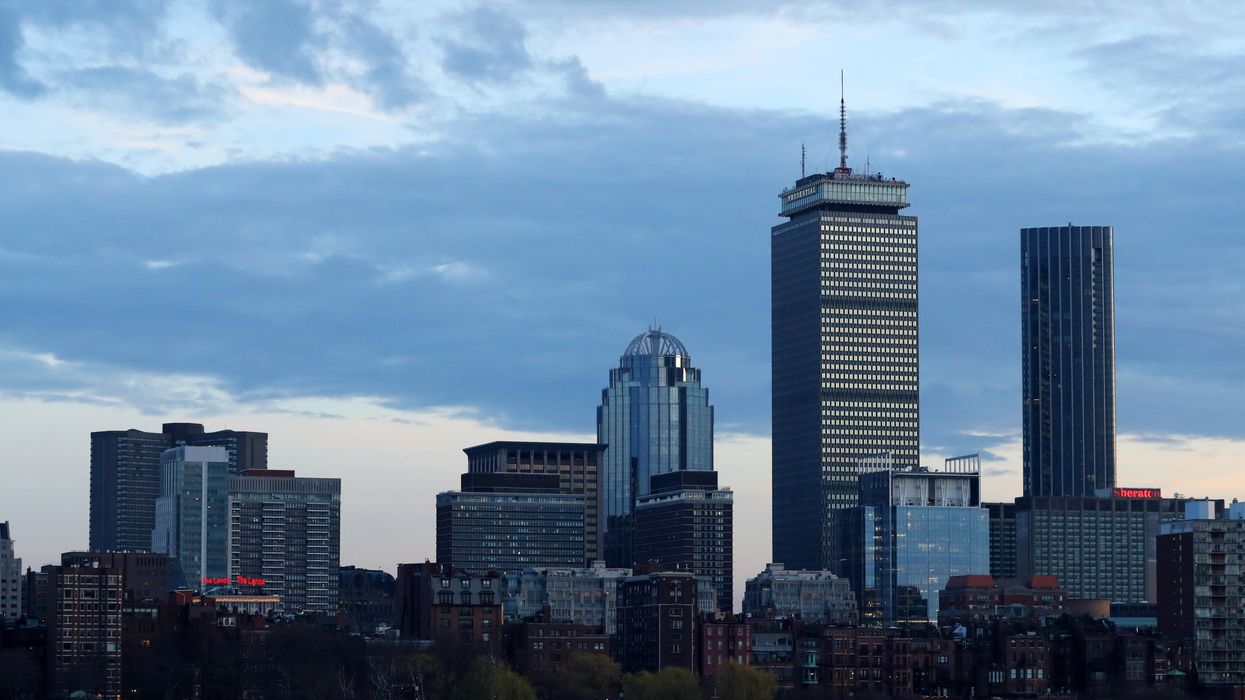As 2022 draws to a close, The Fulcrum has invited leaders of democracy reform organizations to share their hopes and plans for the coming year. This is the sixth in the series.
Santana is the director of the Boston Mayor’s Office of Civic Organizing. Chang is the co-founder and CEO of GenUnity, a civic well-being nonprofit.
We feel unbridled hope for our democracy heading into 2023.
The fissures in our democracy – from state voter suppression and gerrymandering to growing polarization – are urgent and existential. But, our 2022 elections showed us that people – from voters to poll workers to those working at NGOs – are willing to fight for democracy. Their efforts have given us an opportunity to not only repair the cracks of our democracy, but to build beacons of hope – shining examples of how our communities flourish when everyone is involved in the decisions that shape our lives. We are starting to build this beacon in Boston and invite you to join us.
Our urgent and existential democratic issues are deeply rooted, intertwined with history, culture and the ever-present challenge of who we share power with. Rising inequality, digital and physical segregation, and distrust have not only exacerbated these issues but challenged our fidelity in democracy itself.
Yet, our last election showed us that Americans are rising to meet the moment. The young people that polls said are disillusioned with democracy showed up and were critically influential in key races. People may be disillusioned with our democracy today, but they have hopes for what it could be and energy to not just survive but build a democracy that thrives.
Imagine a community built by everyone, for everyone. One where residents who want to drive change beyond Election Day can find pathways to do so. One where residents can come together across differences to share their lived expertise and learn from each other. One where the residents most impacted by an issue – like health equity – are collaborating with institutions – like local governments, health care providers or health insurers – to co-create better solutions. A community like this would be a beacon of hope, showing us that democracy can deliver our ideals of equal opportunity and helping us discover the path to get there.
We are building this beacon in Boston, a city emblematic of our ideals and the deeply entrenched issues we still need to address. From being the birthplace of U.S. democracy to the historic election of Mayor Michelle Wu, Boston has been a trailblazer for freedom and justice. At the same time, Boston’s distribution of power, resources and opportunities still falls along stark racial lines. Boston is the country’s 15th most segregated city, where the net wealth of the average white household is $247,500 compared to $8 for the average Black household.
Embracing the possibilities of Boston’s future begins with embracing the power of our residents and neighborhoods. To realize this bold vision for the city, Wu created the Office of Civic Organizing, which reduces barriers and expands opportunities for residents to be active citizens. Programs like the City Hall on the Go Truck bring City Hall services straight to residents in all of Boston’s 24 diverse neighborhoods. OCO supports community beautification projects through its Love Your Block neighborhood cleanup initiatives as well as through small grants to community organizations for projects like transforming a graffiti-covered bridge into a neighborhood art display and revitalizing a neighborhood park to include a lending library and climate-resilient plants. OCO encourages all kinds of community engagement and collaboration, including promoting neighborhood block parties and offering free Block Party Kits to residents including games, chalk and signage. Most recently, OCO launched a Civic Power Pledge to inspire and support residents and businesses to take everyday actions that build community and improve quality of life for all Bostonians.
In the coming year, OCO will collaborate with local nonprofits to create new opportunities for residents to build their civic agency. For example, GenUnity will launch its community leadership programs where both “proximate experts” experiencing local issues and “siloed experts” working in the public and private organizations meant to address them share their expertise, develop new ideas and execute on action plans. Over time, we plan to launch a collaborative ecosystem of partners to democratize, elevate and build the civic power of everyday residents to unlock transformational change. Critically, we will only succeed collectively, so we invite friends, neighbors and all others to join us.
Many might point to Massachusetts’ historic 2022 election as a sign the state’s democracy is strong and that we should focus instead on where democracy is most fragile. We strongly challenge this scarcity mindset that asks us to choose between providing emergency care to our democracy and treating the root-cause ailments. Today, philanthropy invests only 0.1 percent in democracy-strengthening work. Corporations are ncreasingly recognizing and embracing their role in promoting civic and community engagement. We can and should marshal the resources to do both.
If we do, local communities like Boston can become spotlights that guide our country toward its long-deferred promise of freedom and justice by means of democracy. So in this new year, we invite you to join us in Boston to build a beacon of hope for what our city and country can become.
Learn more about the City of Boston’s Office of Civic Organizing an d GenUnity, a nonprofit organization. Are you interested in making your city a better place? Sign up for the City of Boston’s Civic Power pledge here.



















Trump & Hegseth gave Mark Kelly a huge 2028 gift